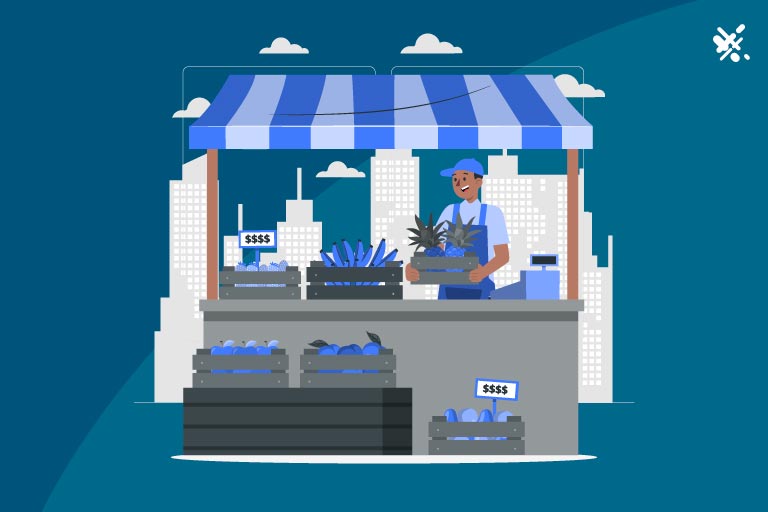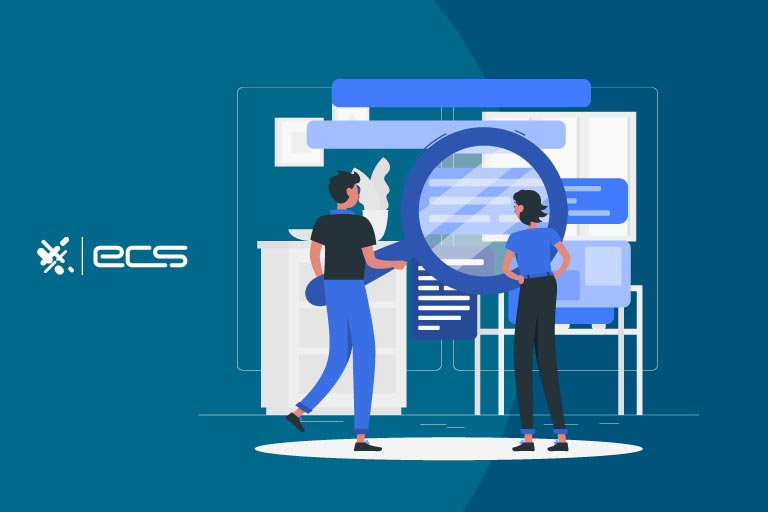As a business owner, receiving payments faster is almost always a benefit and a welcome prospect. Faster payments from customers and clients allow for better budgeting, effective forecasting, easier operations management, and less overhead. One great way to achieve this is through the use of payment links. Payment links allow businesses to receive payments from customers faster and easier than many other traditional methods.
For small businesses or those just starting, it is necessary for faster payments. That money goes toward critical business expenses such as payroll, rent, or other obligations that must be met on a weekly or monthly basis.
But besides that, businesses also want to provide their customers with the easiest and most convenient way possible to pay for goods or services. By doing this, the business gets faster payments and the customer enjoys a more streamlined and personalized process.
Below, we’ll explain how payment links work, how to best use them for online payments, and other tips for leveraging this payment method to help your business.
What is Link Payment?
If you are a business that can accept online payments, a payment link may be a great option for you. Payment links are similar to invoices but they have many benefits over the traditional invoices many businesses send out.
A merchant can send a customer a payment link with a personalized invoice that also contains a direct link to pay the amount due. This link directs the customer to a pre-filled out payment page with all their information. So all they need to do to complete the payment is to fill out their payment details.
In some cases, businesses with customer portals may have stored billing information. This can make payment links even more convenient as customers can pay with just a mouse click or two on the payment page.
In general, when it comes to accepting payments, the more information you can have pre-filled for the customer, the less hesitation customers will have when paying. Not only that, customers appreciate the convenience of not having to fill out repetitive information when making a regular payment.
Customers often receive payment links via email. But mobile versions are also available so that customers who prefer it can have their payment links sent via SMS. In lieu of a URL, payment links can also include a QR code for scanning so that customers can easily access their payment page without typing or clicking anything.
Payment links are provided by your payment processor and are accessible through your merchant account. Different payment processors may offer different levels of customized payment links, so it’s important to find a processor that offers the type of links you need for your business.
Benefits of Using Payment Links
There are many benefits that implementing payment links can offer your business. We will take a look below at all the ways adding link pay can benefit you.
Faster Payments
The main benefit of using a link for credit card payments online is simply faster transactions and processing for your business. Going through accounts receivable and generating invoices to send out is time-consuming and also relatively annoying for the customer as well.
An invoice without a payment link requires the customer to visit a website manually, usually by entering the URL, then also having to navigate to a specific page. Once there, they have to enter their information, which is time-consuming.
This makes some customers put off this task as long as they can. Which means slower payment for you. Certainly, this hurts conversions as customers simply put off paying altogether. Which means a lost sale.
Seamless Integration into Your Business
Next, sending a payment link doesn’t require complex digital infrastructure. Most technologies require businesses to invest in digital tools and servers to make it all work. Then they have to hire specialists to provide support or help with implementation. Payment links are built into your payment processing and can be used immediately. Often, without any complex knowledge.
You can also be white-label your payment links with your business logo and other information so customers know exactly where the invoice has come from. Which would make them feel comfortable following the link to complete the payment. This white labeling and customization make the whole process seamless for the end user. They are often not aware that an outside payment processor is involved.
Payment links can often pull information from your other accounting tools or software. Because payment links require no coding, any employee or staff member can easily learn how to send payment links.
This means payment links are fast and easy to integrate with your existing workflows and don’t require any additional training or staff.
Security
Finally, we have secured credit card transactions. Payment links help you stay PCI compliant by sending a secure link so that the customer’s path to your payment page is compliant and safe the entire time. There’s no chance of them typing in the wrong URL. Which means no chance of landing on a phishing page or other security threat.
Who Can and When To Use a Payment Link
Payment links can work in a wide variety of situations and for many types of online transactions and industries.

Small Businesses
One area where payment links are most beneficial is for small businesses. Small businesses or startups often lack the infrastructure to have the type of secure and modern billing setups many consumers expect.
Payment links help bridge that gap. Since they require no servers or additional hardware, small businesses can take advantage of these immediately to increase customer satisfaction and receive that much-needed cash flow faster.
Service Providers
Another industry that can benefit from payment links is service providers. Service providers include legal services, accounting services, pool services, plumbing services, HVAC services, pet services, stylists, and lawn care. Ultimately, it can include any professional that bills after rendering services and doesn’t require a face-to-face payment. These and many other industries can all benefit from payment links, as can their customers.
With these types of payments, the customer already knows that services have been rendered. Therefore they are aware of the outstanding payment due. So a simple and easy link with a direct way to pay is the fastest and most convenient way for both the business and the customer. Unless you have tap-to-pay options available to you. Then you can collect payments in person and on the spot with your mobile device.
Medical and Healthcare
Even services like certain healthcare and medical fields can benefit from payment links. For certain telemedicine appointments, dental services, and other visits, medical merchants can send links if there is a past-due balance. Or if there are any additional payments due such as a copay or coinsurance.
Prepayment or Down Payments
But it’s not just payments for services or products already delivered that can benefit from payment links. Services or jobs that require prepayment or down payments are also great candidates for pay by link adoption.
For example, if a landscaping business or contractor needs a downpayment to begin work on a project, they can get paid by link to receive those funds almost instantly. Real time prepayment is far superior to waiting for a check to arrive and then clear before beginning work. Customers and clients also enjoy the speed this offers, as it means they can expect work to begin sooner.
Fundraising And Donations
Another area where payment links are crucial is in the charity sector. Fundraising means maintaining a tight relationship with donors. This includes personalization and making it easy for donors to contribute to their favorite nonprofits.
Pay links allow for a personalized message to donors along with an easy method for making their donation. Specific situations which require fast action to capitalize on a fundraising can leverage payment links.
Nonprofits can easily create and send out links immediately. So whatever fundraising situation occurs, nonprofits can contact donors personally to request financial support. You can include a payment link in an email campaign, on your social media, or sent out by text to your current contact list to provide a reminder to donate and an easy way to do so.
High-Risk
Those businesses that conduct high-risk transactions may also be able to use payment links. High-risk businesses sometimes have it tough already with added regulations, but payment links can work in this industry as well. In reality, it would depend on your specific business’s services or products and your payment processors capabilities in this industry.
If you run high-risk transactions, contact ECS Payments and speak with our high-risk experts about payment links and other solutions for your high-risk business.
Payment Links Help You Stay Current With Consumer Demands
New digital technology has changed many different aspects of how merchants run their businesses. But consumers have changed their behaviors as well. As a merchant, you’ve likely seen an increase in mobile payments or contactless payments like Apple Pay or Google Pay. You may already have POS hardware to adapt to these changing trends.
Pay links help your business stay in touch with changing consumer behavior as customers demand more personalized payment solutions that make their lives easier.
Don’t lose customers to competitors who offer newer pay-by-link services or easier payment options. By using payment links you keep your customers happy and give them the options they want from their service providers.
How To Create A Payment Link
To begin, you will first need a merchant account with a payment processor. A payment processor is a company that allows you to accept electronic payments like credit or debit cards and provides access to various payment gateways.
If you need a merchant account for your business, ECS Payments is here to set you up fast.
Once you have your merchant account set up, the payment links will be part of the service provided by the payment gateway. Some of the most common payment gateways are Authorize.net and NMI, although there are others.
Authorize.net
Payment links will be available within the dashboard for your payment gateway or merchant account. For example, if you’re using Authorize.net, there is a Bill & Pay section you will have access to.
From this area, you can access various features including payment links that can be sent to your customers. Another aspect of this system is that you can integrate the link system within Authorize.net with Quickbooks, the popular business accounting software.
This means you can use the customer information already stored in Quickbooks to automatically generate links for customers. These can be one-time links or they can be set up for recurring or other types of payments.
Payment links can also be set up to go to hosted billing pages. A hosted billing page is a secure checkout page provided by your payment processor or gateway service. This is useful for businesses that may not have a full website or a website that isn’t PCI compliant yet.
Customers receive their custom link and it leads to a secure checkout page for them to enter their billing information. The business doesn’t have to worry about security or other issues as this is all handled by the hosted page and payment link system.
These hosted pages can often be white-labeled just like the payment links can. So customers still feel as though they are paying your business directly and not using a separate service.
NMI
If NMI is your gateway, payment links are accessed in a similar way as Authorize.net. First, you’ll need to make sure that Electronic Invoicing is active as a value-added service.
If not, contact your payment processor to add this service to your existing account. If you need help with this or any other aspect of your payment processing, contact ECS Payments. We offer solutions for both Authorize.net and NMI gateways.
Once Electronic Invoicing is active, you can access it via the Merchant Portal where there is an area labeled Add An Invoice. From this same area, you can also search invoices or links you have created and make other changes to the invoices you send. This includes allowing for various payment methods such as ACH or eChecks if your merchant account has those options enabled.

When Are Payment Links Not The Best Choice?
As we’ve already described, payment links work for a wide range of business types and payment situations. But there are certain situations where merchants may not want to use links and instead use other options.
For example, payment links may not be the best option if your business focuses on in-person retail, such as a gas station or a grocery store. For these types of businesses, a countertop POS system or payment terminal/ card reader would be your best option.
Next, if you have complex invoicing needs where customers pay portions of an invoice, then payment links may not work the best in these situations.
Additionally, if you need to track multiple invoices all related to the same project or case can be more difficult or impossible with payment links. For consistent payments made every month in the same amount, like payment plans, it may be better to use recurring billing instead of payment links.
If you have a payment processor, like ECS, they can supply a gateway that can also include services for recurring billing with secure storage of customer information such as tokenization and virtual card vaults.
Overall, payment links are best for one-time purchases or payments that may recur, but are for different amounts or the invoice details change somewhat. More complex invoicing is usually best left to traditional methods such as accepting payments via credit card or ACH manually through a customer portal or via the telephone if the merchant is set up for it.
Choosing A Payment Link Provider
If you’re a new merchant, it’s important to make the right decision when choosing a payment processor that can accommodate the needs of your business. This includes whether or not they offer payment links and how much customization they allow for those links.
For maximum flexibility, you want to choose a payment processor that offers different gateways, such as Authorize.net or NMI, not just one or the other. Each gateway has different features and advantages to its merchant portal and payment link system.
A trusted payment processor will understand the specific billing needs of your business and can walk you through the differences between each gateway as well as suggest which one will be the best fit.
They can also make sure you have all the additional features activated on your account so that you can start processing payments via links as soon as your merchant account is approved.
High-risk merchants need to take even more care when choosing a payment processor. High-risk transactions require a processor who is familiar with high-risk industries and understands how to work with credit card issuers to maintain compliance. This helps keep your account in good standing without the risk of penalties or losing the account.
More Information On Payment Links And Merchant Processing
If you’re a merchant who wants to expand their billing options and offer customers the latest personalized payment options, contact ECS Payments.
ECS Payments is a trusted leader in payment processing and we’ve helped merchants all around the country easily implement the latest solutions to help their businesses thrive in the digital age.
ECS Payments is also a specialist in high risk-transactions and industries. Very few processors have the expertise we have in this field to help merchants manage and grow in a high-risk industry.
Contact ECS Payments and learn how we can help your business achieve maximum success by using payment links and the latest digital billing solutions.
